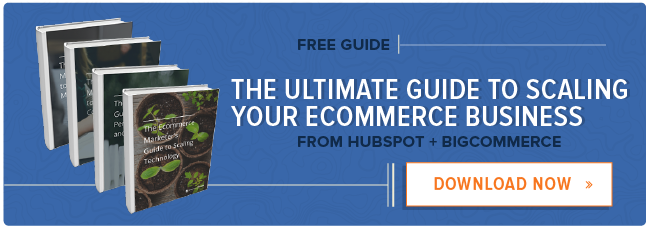Look, no one has a crystal ball at the ready to tell you who’s going to buy what, and how much, and when. Does that mean you have to wait around to see what a customer’s going to do? Of course not. You can learn a lot about your customers by studying their habits—past visits to your site—to predict what they’ll do next. It’s just a matter of knowing what information you need and when to use it.
From Search to Landing Page
One of your best friends when determining customer behavior predictions is your Google AdWords account. This program determines all the keywords your buyers searched, which of those searches resulted in clicks through to your site, and which of those clicks through resulted in a sale.
Once the buyers have clicked through from AdWords to a landing page on your site, you can use that information to lay a path from start to purchase. After all, you already know what they’re looking for. They told you when they searched Google for it. Should you slow them down in their search by leading them to a generic landing page? By creating more clicks instead of directing them right to the shopping cart and checkout? Of course not. When a buyer tells you what they want to buy, you remove all obstacles.
From Social Media to Website
It’s harder to pin down a visitor’s reason to stopping by when they come through social channels. The hardest of all is a click to the address in your company profile. You can assume that social proof is important to that buyer and react accordingly, but you won’t get much more information than that.
Clicks through from specific social posts, however, can tell you a lot more about the buyers’ thought process. Did they visit to read a particular blog? You might surmise they’re looking for more information. Did they click through an image of your hottest products? Maybe they’re in the market for one of those products, or maybe they just like to know what the trends are.
Every action on social marketing channels will help you narrow down the information you need, so don’t give up. The more information you have about your visitors’ past behavior, the easier you can predict where they’ll go next.
From First-Time Buyer to Loyal Shopper
Past purchases give you the greatest insight into buyer behavior, don’t they? That’s why you can’t consider the transaction complete once you’ve received payment. Now you know more about that buyer than you ever had, so you can’t just let them walk away forever.
The information you gather after this purchase will tell you what you need to know to move forward. Was the purchase a gift or something necessary to the buyer? Did he or she purchase accessories? Did the buyer spend a lot of time making a decision—evidenced by multiple visits to your site, comparisons between products, and perhaps even conversations with customer service?
What you learn will help you determine if you should continue providing gift ideas to the buyer or if they need more information about similar products for their own use. If they often buy the accessories needed to make your products bigger and better, then they’re probably going to appreciate upselling and cross-selling information.
You never want to make your use of past information creepy, so be careful when showing your hand. Buyers will appreciate a PPC click leading to a landing page, but they may not want to see ads for that exact product following them around for days after their initial search. They might enjoy their social media clicks leading to the right information on your website, but they may get a little freaked out if you strike up a Twitter conversation out of the blue. Your goal is to smooth the path between want and own, to provide the information buyers need as soon as they need it—not to be a stalker.


No comments:
Post a Comment